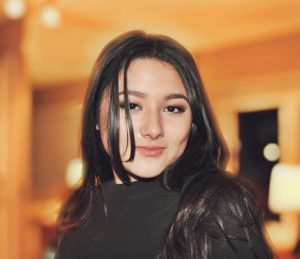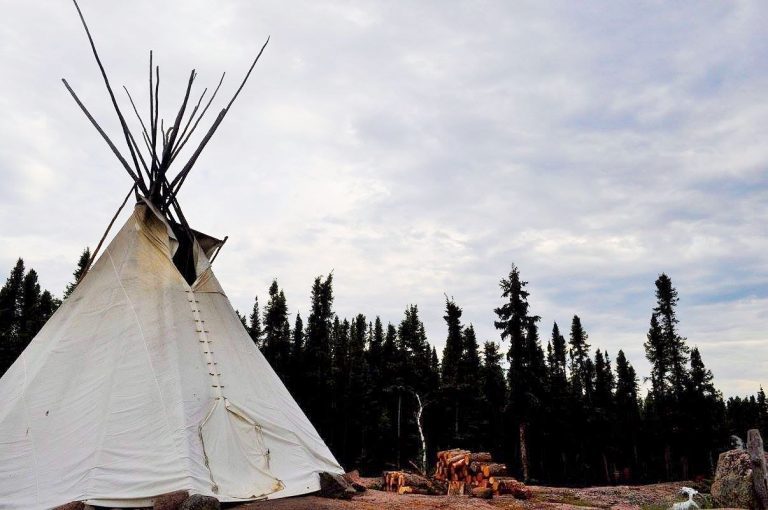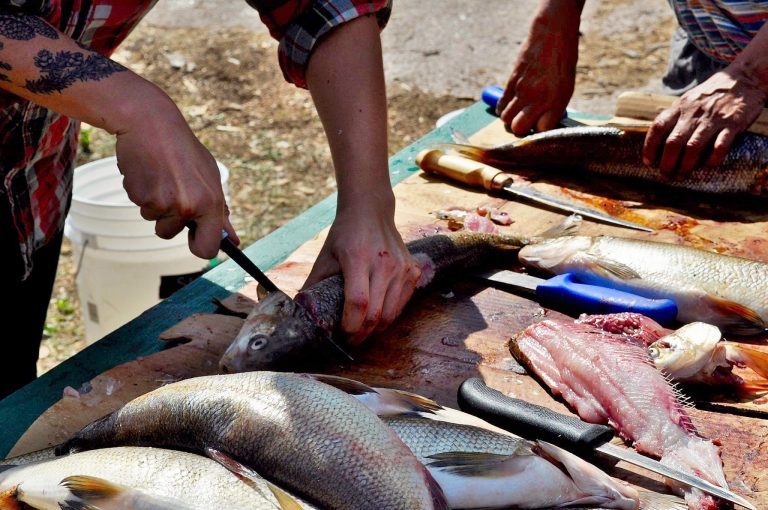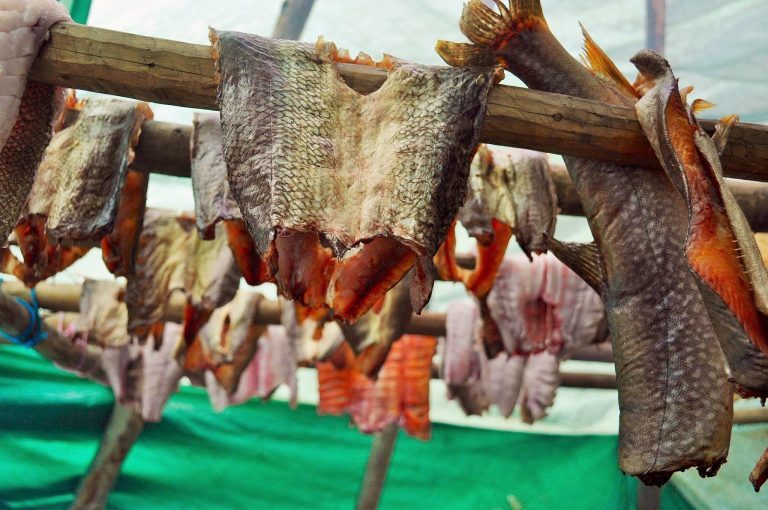Alexa McPhee is in fourth year studying First Nations and Indigenous Studies and Political Science. She is the president of the First Nations and Indigenous Studies Students Association (FNSSA) and volunteers around Vancouver. In the summer of 2017, Alexa attended a pilot program through UBC and Dechinta for a week. Read more to learn about Alexa and her time at Dechinta!
Where you from and what are you studying at UBC?

I am of mixed Japanese, Mi’Kmaq and White Settler ancestry. My father is from New Brunswick, and my mother is a second-generation Japanese immigrant. I grew up and have spent my entire life as a grateful, uninvited visitor on the shared unceded territories of the Musqueam, Squamish, Tsleil-Waututh and Sto:lo Nations (Coqutilam).
I am a fourth year double major in First Nations and Indigenous Studies and Political Science. Outside of classes I volunteer at Urban Native Youth Association as a mentor, and work at a safe, affordable and secure Aboriginal housing non-profit—both in the Hastings-Sunrise/DTES areas. I am also currently the president of the First Nations and Indigenous Studies Students Association (FNSSA).
Where did you hear about the Dechinta program and what made you decided to embark on this Go Global Seminar?
I heard about Dechinta through a class I took with David Gaertner last year. I was initially interested because the course was unlike anything I had ever taken before, but my interest grew as I learnt more about the work that Dechinta, Glen Coulthard, Leanne Simpson and the rest of the amazing instructors were doing in regard to land based education.
Describe one of your favourite moments during your time there.
Quite honestly, my favourite moments were in the evenings sitting around the fire visiting and chatting. Of course, I loved every moment of our seminars and land based practices, but just sitting around the fire chatting and enjoying each other’s company is something that felt so familiar and comfortable to me. I think some of the most important knowledge that I took away from Dechinta came from sitting around the fire.
Describe something you didn’t expect happening or learning about at Dechinta.
As I was a part of the short course (the 2017 Summer Dechinta program was a week-long visit to Yellowknife), I didn’t expect to come out of Dechinta with such a close community. I did not expect to form this really comfortable, and close community in such a short time, but I am so happy we did.
What is something you want the next cohort of students who attend Dechinta to know beforehand?
If you are there in the summer, don’t wear black. The mosquitoes love it. But also, be open to being out of your comfort zone. Mainly, I would just encourage students to go in willing and ready to learn, make mistakes and create a little community. This course is not like any other university course you could take. Also, don’t expect all of the learning to come from readings or lecture slides, a majority of learning and knowledge will come from the relationships you form and land based practices like cleaning fish or tanning moose hide.
If you are thinking about applying to Dechinta but are unsure, just do it. It will honestly be one of the best (if not the best) experiences in your undergrad.
How did you find a new community when you came to UBC? Do you have any advice or tips you can share with new and current Indigenous students for making new friends?
As students in an unfamiliar and intimidating space like UBC, and especially as Indigenous students and students of colour, finding a community can be really difficult. Besides having to deal with the stresses of academia, we also have to deal with intersecting forces and systems that can often make us really uncomfortable in settings such as universities. My best advice for anyone looking for like-minded friends and a community is to seek out student clubs or groups on/around campus that represent you. This is one of the easiest (and in my opinion least-uncomfortable) way to meet new people. Even if you don’t want to be involved in a club, go to an event or a meeting and see who the people that are interested in the same things as you are!
For Indigenous students (and students interested in Indigenous issues) there are some really great student led resources on campus that work towards creating a community, like FNSSA, UBC Indigenous Students Association and the Indigenous Collective to name a few.
(Photo Credit: all photos taken by Alexa McPhee)
ASA Tip: Dechinta has expanded from the Summer course program into a full semester which will occur during Term 1 of Winter 2018. Visit this website to learn more about Dechinta.
If you’re interested in applying to Dechinta, email go.global@ubc.ca for more information. If you are an FNIS major or minor, email info.dechinta@ubc.ca to discuss how Dechinta will apply to your specialization.
Interested in getting involved with First Nations and Indigenous Studies Students Association? Check out their Website and Facebook.





